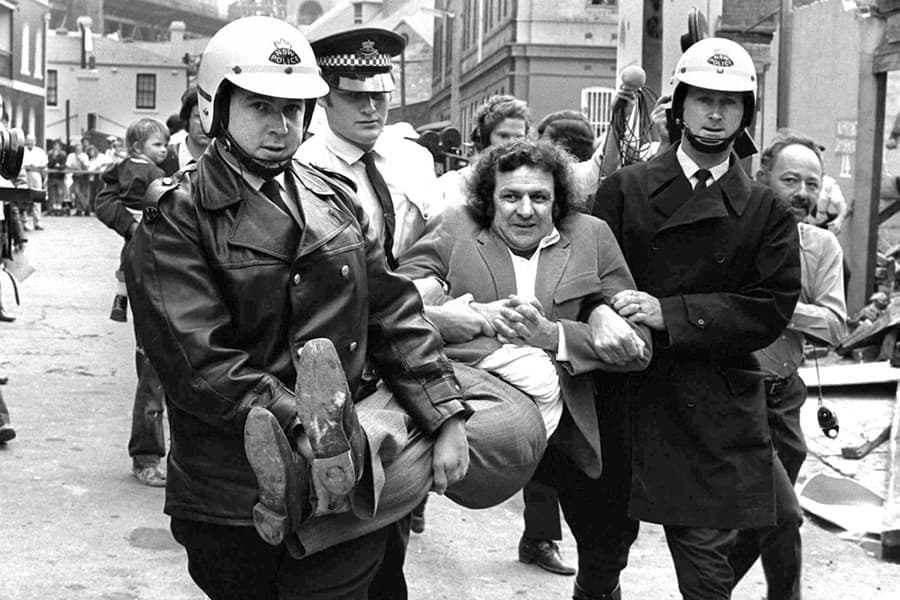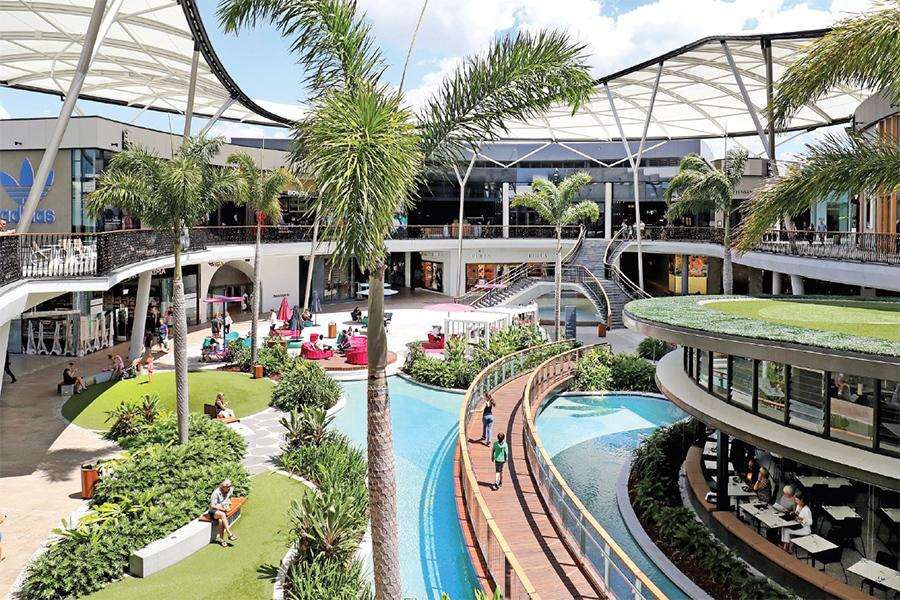SCN’s publisher was fortunate to be a friend of the late Jack Mundey. In the true sense of the word, Jack Mundey was an extraordinary man. Had the coronavirus pandemic not been upon us, it is likely that he would have been granted a State Funeral, such was the magnitude of his contribution to his fellow citizens.
Jack Mundey began his ‘public career’ as a union leader, head of the NSW Branch of the Builders Labourers Federation (BLF), at a time when corrupt politics in the state of NSW had reached its zenith. Developers ran wild and Sydney’s Rocks area was designated for demolition; Mundey, leading his union, lying in front of excavators, stopped the process and in so doing, saved The Rocks.
Today, it seems incredible that so little value could be accorded to such magnificent architectural and environmental heritage. Part of Sydney’s Botanical Gardens was to be re-zoned to provide for a multi-storey car park for the Opera House; Jack Mundey led opposition movements against it with the result that the car park was placed underground. Centennial Park was earmarked for a giant sports stadium. Amongst many others, he saved major buildings in Woolloomooloo, Kings Cross and Glebe. His contribution to the preservation of architectural heritage has, and will be, documented in volumes. His and his union’s major strategy in preventing redevelopment was to apply ‘Black Bans’ to certain building sites, forbidding any union member from working on them.
In 1971, Jack Mundey was approached by a group of middle class ladies, residents of Hunters Hill, to help them in a bid to prevent the proposed development of Kelly’s Bush in Woolwich, one of the last parks in the suburb. Jack realised he needed a different approach; ‘Black Ban’ gave way to ‘Green Ban’.
During the time, Spike Milligan was visiting Australia and used the term, ‘Green Ban’, to save the Birmingham Post Office. A group of German environmentalists, aware of the strategy, used it for the first time in continental Europe. It spread; the now international term ‘Green’, as used in relation to environmental conservation and sustainability issues, originated with Jack Mundey.
His efforts and influence extended far beyond the architectural and environmental landscape. He saw the link between the built, and natural environment issues, with social movements – Women’s Rights, Gay Rights – and added his considerable weight to supporting the furtherance of their causes.
In 1971, Mundey supported the protest movement against the South African Rugby tour; he was a fierce opponent of apartheid and campaigned solidly for the release of Nelson Mandela. He was arrested for interrupting the Sydney game, one of many times; he was placed in ‘lock-up’ cells on several occasions. He was ‘roughed up’ by agents of his opponents and was aware of a professional assassination plot spanning a six-month period, at the height of his Black and Green Ban activity. It’s estimated that Jack Mundey and his movement prevented some $5 billion of development; in today’s terms, that equates to a figure of around $80 billion.
For this writer though, Jack Mundey’s lasting impression, will be that of a man who lived as he believed. He was never tainted by fame or fortune; he (and his surviving wife Judy) practiced what they preached. He lived very modestly in a comfortable yet small townhouse in Croydon. He never owned a car, always using public transport throughout his life. He didn’t fly often, but when he did, he sat in economy.
When I took over the Argyle Stores, converting the refurbished building into the Argyle Department Store in the late 1990s, I invited Jack Mundey to the Gala Opening. It was attended by some 500 or so of the highest profile celebrities, politicians, business leaders and the like; Jack Mundey was the only man in the room without a black tie; he said to me simply when I greeted him: “I don’t wear formal dress”.
Jack Mundey was, simply, a giant of a man who contributed to this society with all he had. He was a rare idealist who championed causes in which he believed. He never ‘sold-out’, took an opportunistic ‘short cut’, or ever even entertained the thought, ‘what’s in it for me’. He was truthful, honest, socially committed and more to the point, effective. Although somewhat of a humble ‘rough diamond’, Jack Mundey was one of, if not the most intelligent, dignified and noble men I ever met. I was proud to have him as a friend.
Jack Mundey’s legacy will live on. His influence extends world-wide; what he actually did is a piece of our history, something those who follow us will be proud of, as a part of their heritage.





















